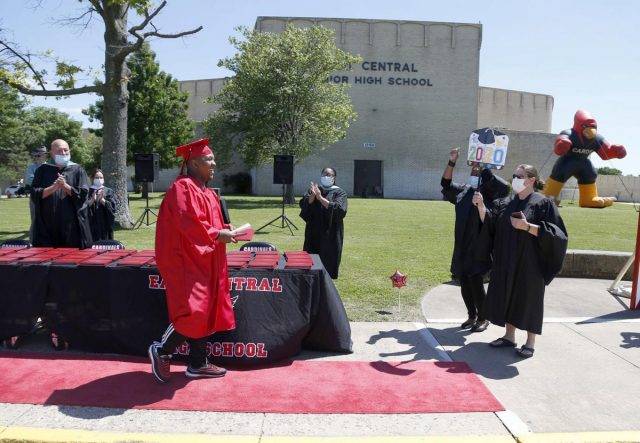By Shannon Thomason
UAB News
For high school seniors bound for college, the COVID-19 pandemic struck at a pivotal time in life — as they finish one chapter and prepare to start a new one.
They may be safe at home but will not finish their high school careers as expected, missing out on some memorable times in life: rites of passages like prom, senior day and graduation.
Their future is uncertain, as well; for those planning to attend college, questions include will they be able to move into a residence hall, meet new roommates and attend classes? Or those who are looking for jobs — what will the job market look like during this time in our economy? What are their options? It is hard to predict what will happen in coming months, even for the experts.
We do not have anything to compare it to, says Angela Stowe, Ph.D., director of the University of Alabama at Birmingham’s Student Counseling Services and Wellness Promotion.
“People who are missing these milestones — individuals have had these issues before; but for it to happen at the same time globally, it is very, very different,” Stowe said. “Certainly in the past, families have experienced personal things that may have gotten in the way of plans; but for this to happen for everyone at the same time on a global scale, it is unprecedented.”
Some people are resilient and able to make meaning, hope and opportunity out of an experience like this, while others may have a much harder time of it, she says.
Stowe has advice for students leaving high school, and those about to start college, on bringing closure to their K-12 experience and preparing to move forward with their lives. Her first suggestion for graduating students is to check with their school and see what opportunities may still be available for them, even with social distancing. Some schools are offering special cap and gown pickup, gatherings that keep people in their cars, or other ways to encourage celebration.
Create Special Occasions
“Rituals are important to the transition. Take photos in your cap and gown, have a special dinner with your family, do a Zoom or virtual party, or send out graduation announcements. Create some kind of ceremony, event or way to mark the transition.”
Look Back With Gratitude
Students may consider writing a note to a special teacher or someone who has positively influenced them. “Let them know you are grateful, or find a way to share that feeling. Put together photo collages that reflect your journey. If you are part of a youth group or social group, or just a group of friends, put some photos together and have a PowerPoint party. I think we are going to see people come up with beautiful, innovative ways to celebrate.”
Take It Easy On Yourself
“Have compassion for yourself and others. Young people often cannot see the big picture yet. There will be people who will have to make decisions that were not what they have always planned or expected, she says. “They may put off college for a year or decide not to go away to school. Even if you are veering off the path for right now, it is just for right now, and you can get back on; it is a little detour. Think about little road trips. Sometimes the detours end up being the best part.”
Reframe Your Situation
“Acknowledge the grief and the loss; it is not what you expected. Gratitude is helpful to reframe your focus. You can name the things you are grateful for, and that can help reframe the situation. You may see how fortunate you are and shift the focus from what you’ve lost to what you have learned, gained and have new opportunities for.”
Battle Anxiety With Facts
“Anxiety comes from what we don’t know and from lack of control. What can help our anxiety? Information. Knowing. Acknowledging what we can know and not know. Over-experiencing news and over-utilizing social media can increase your anxiety, but having information from reliable resources can ease your anxiety. Connect with reliable resources. Focusing on what you can control can help. Routine helps with anxiety; it puts us in a position where things are predictable, and we have some control.”
Make Self-Care A Priority
“It helps us to set up our self-care routines. If you don’t stick to a routine, then it can make you feel worse. With a routine, we are more likely to sleep, take care of our hygiene and be well. Having a routine can help with that anxiety and help manage our mental health as well.




